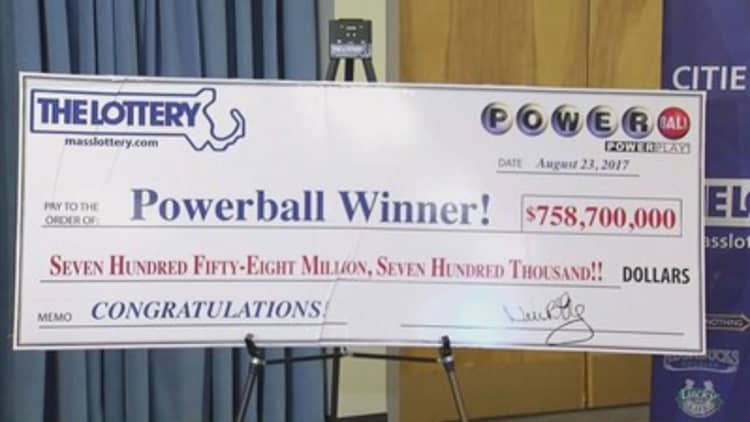A New Hampshire woman holding a Jan. 6 $559.7 million Powerball ticket but who has been fighting to both receive the money and keep her identity a secret has gotten her wish — for the most part.
A judge ruled Monday that the woman can keep both the money and her anonymity but she will have to disclose her hometown of Merrimack, New Hampshire, since, the judge argues, she cannot be identified solely by her the name of her town.
Still, for practical reasons, remaining anonymous to the extent possible makes sense to Nick Holeman, a certified financial planner at online-investment company Betterment. Anyone holding a winning ticket should try to stick to some ground rules, such as maintaining a low profile, he told CNBC Make It.
While winning the lottery can be a life-changing event and allow for generous donations like those the New Hampshire winner anticipates, it can also come with challenges.

Should the New Hampshire winner's name be revealed, "she will be subject to an alarming amount of harassment, solicitation and other unwanted communications," the judge wrote in his ruling, according to the New York Times.
That's why Holeman says, should you ever come into a huge windfall, if you cannot stay private, then prepare to say 'no,' since it's likely family and friends will come to you with financial requests. Remember that "you can't help everybody, Holeman says. "You're going to risk being called selfish or stingy but, even if you win millions, he adds, "you have to be smart with who you lend money to and who you help out."
Generally speaking, he says, "I would recommend not telling people." Publicity can subject winners to greed and crime. So, "I wouldn't go broadcasting it to the world."
Also, he suggests, consider hiring a financial advisor and avoid making rash decisions. Lottery winners are more likely to declare bankruptcy within three-to-five years than the average American, according to the Certified Financial Planner Board of Standards. Nearly one-third eventually declare bankruptcy, likely due to the lack of a plan.

"When you're talking about that large of an amount of money," according to Holeman, "your situation gets very complicated, very quickly. You'll be subject to higher rates of taxes, your tax deductions get phased out … and you have new taxes that you weren't even subject to before."
If you get used to living an overly extravagant lifestyle, he says, "it's easy to forget that the money is not necessarily guaranteed if you're not smart with it."
The New Hampshire winner, who received her post-tax winnings of $264 million by way of her lawyers, says she plans to "give $150,000 to Girls Inc. and $33,000 apiece to three chapters of End 68 Hours of Hunger in the state. It is the first of what her lawyers said would be donations over the years of between $25 million to $50 million during her lifetime," NBC News reports.
"My client doesn't want any accolades," William Shaheen, one of the woman's lawyers, says. "She doesn't want any credit. She just wants to do good things."
This story has been revised and updated.
Like this story? Like CNBC Make It on Facebook!
Don't miss: Here's why a $560-million Powerball winner doesn't want anyone to know her name



